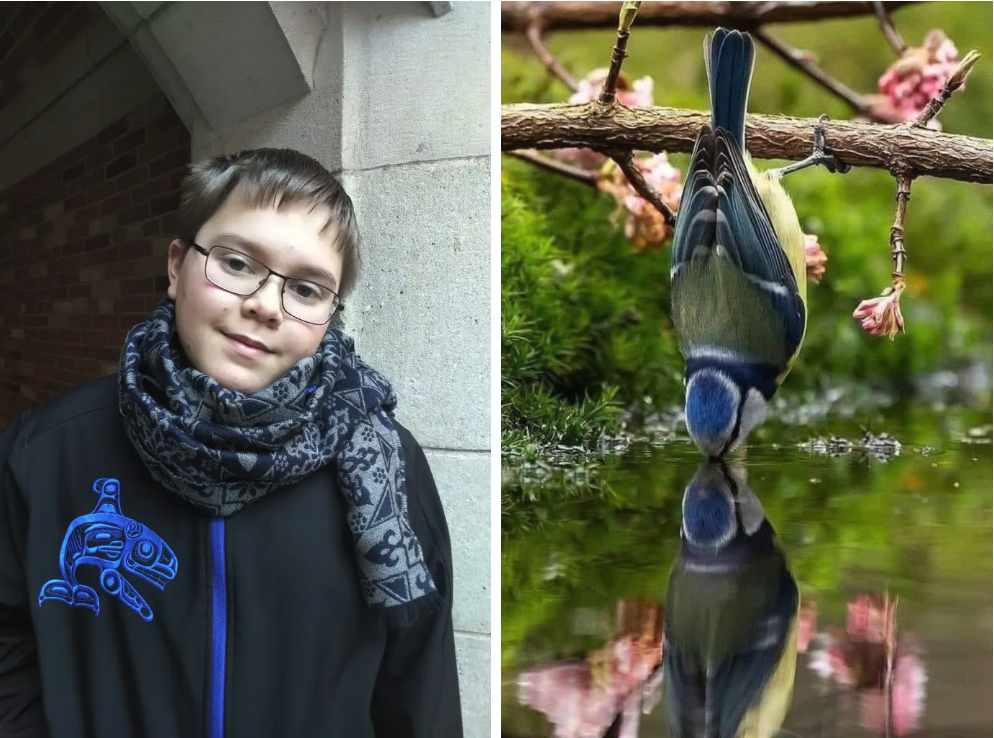Introduction
Nature is very important for youth, not just to value the uniqueness and wonder of the natural world, but also because we depend on natural systems, natural resources and ecosystem services for our quality of life and our very survival. Young people can connect with our environment and the natural world through green spaces, protected areas on land and underwater, and other areas. We can help to protect and restore biodiversity, finding and promoting nature-positive solutions for sustainability.
According to the Global Youth Biodiversity Network (GYBN): “Our generation has seen many of the promises of the Millennium Development Goals, the Aichi Biodiversity Targets, and the Kyoto Protocol fail.”
“We need real transformative change – for humankind to realign priorities, values, behaviours, and actions. We have the creativity, will and energy to reinvent our systems, equitably and sustainably. But for our generation to have hope for a future built on peace and harmony with nature, we need unprecedented action.”
The adoption of the Global Biodiversity Framework in the Convention on Biological Diversity (CBD) of the United Nations in Montreal this December 2022 represents an historic moment – our opportunity to bend the curve on global biodiversity loss.
The newly adopted Global Biodiversity Framework includes several very important commitments by countries, stakeholders and communities.
In the Global Biodiversity Framework, countries have promised to take action, before 2030, to ensure effective conservation and management of at least 30% of the world’s lands, inland waters, coastal areas and the ocean; to have restoration completed or underway on at least 30% of degraded terrestrial, inland waters, coastal and marine ecosystems; and to reduce to near zero the loss of areas of high biodiversity importance, including ecosystems of high ecological integrity. These promises are important for youth because many of us have not yet had the opportunity to explore and learn about our lands, inland waters, coasts and oceans – we need to protect natural systems for current and future generations, and to save the millions of plant and animals that many young people love from extinction.
Countries have also committed to reduce by half both excess nutrients and the overall risk posed by pesticides and highly hazardous chemicals. This commitment is important for youth because chemicals can be dangerous for wildlife and also communities who live near areas that are contaminated, especially young people and the elderly who are often much more vulnerable to poisons and hazards.
Further, countries have promised to prevent the introduction of priority invasive alien species and reduce by at least half the introduction and establishment of other known or potential invasive alien species and eradicate or control invasive alien species on islands and other priority sites. This is important for youth because such efforts give a fighting chance to the species which we need to protect for future generations and prevent invasive species from destroying the habitats and ecosystems that many young people depend on for food and income.
In addition, in the Global Biodiversity Framework, countries commit to cut global food waste in half and significantly reduce over consumption and waste generation. This will mean, if we can also improve food distribution, that there is more food for the future families who would otherwise suffer from nutrition and food insecurity. Further, it will mean less waste in the natural environment, affecting quality of life for youth and others who depend on nature.
These commitments are underpinned by new finance for nature, which includes to mobilise by 2030 at least $200 billion/year in domestic and international biodiversity-related funding from all sources; and to raise international finance flows from developed to developing countries, in particular least developing countries, small island developing states, and countries with economies in transition, to at least US $20 billion per year by 2025 and to at least US $30 billion per year by 2030. This is important for youth because nature-positive finance can open new jobs and opportunities for young people to help protect and restore nature and earn their livelihoods while doing so.
Further, countries community to progressively phase out or reform by 2030 subsidies that harm biodiversity by at least $500 billion per year. This is quite important for youth because it means finance is redirected towards projects that are good for biodiversity, which can support new efforts in these areas, and also that finance does not support activities which degrade and destroy that natural world, making young people who depend on it suffer.
They further committed require large and transnational companies and financial institutions to monitor, assess and transparently disclose their risks, dependencies and impacts on biodiversity through their operations, supply and value chains and portfolios. This is important for youth because it will mean there is accountability for companies which ruin environments and habitats, and if companies can assess and manage their activities and products more sustainably, they can sell higher quality more sustainable products to young consumers who can learn to consume more responsibly.
Conclusion
All countries including youth should take action immediately to implement the Global Biodiversity Framework before it is too late. Even with these new targets and commitments, we need to scale up the action, partnerships and resources that are desperately needed right away to keep these promises for our natural world. We face a terribly urgent biodiversity crisis which is sure to worsen as climate change, conflict and other conditions worsen. Our efforts need to be backed by education, awareness and political will, and supported by more widespread media coverage. As youth, we have an opportunity and an obligation to make change in our schools and communities, so that everyone will be able to respect, restore and appreciate the natural world.
To read other posts by Nico Roman go to https://nicosnaturalworld.org/


